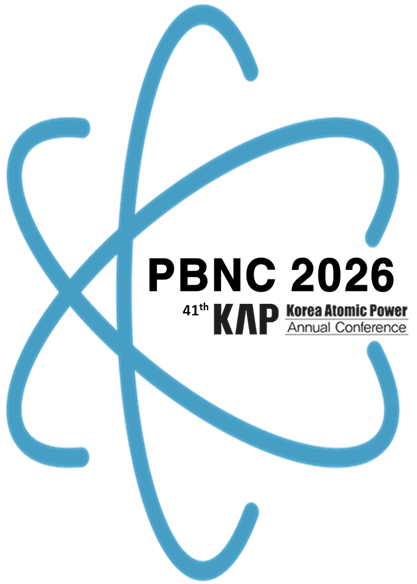48th AMSTERDAM International Congress on “Sciences, Social Sciences, Humanities & Technology” (SSSHT-25) scheduled on Sept. 24-26, 2025 Amsterdam (Netherlands)
SSSHT-25
- URL: https://earet.org/conference/294
- Event Date: 2025-09-24 ~ 2025-09-26
- Submission Date: 2025-09-10
- Organizer: EARET
Game Theory and Decision Science Human Resources & Organizations Chemical & Material Sciences (General) Engineering & Computer Science (General) Food Science & Technology Human Computer Interaction Social Psychology Humanities, Literature & Arts (General) Social Sciences (General) Social Work
Call for papers/Topics
Topics of interest for submission include any topics related to:
Science and Technology
- Artificial Intelligence and Machine Learning:
- Ethical implications of AI
- AI-driven innovation in healthcare
- AI in education
- The future of work in the age of AI
- Climate Change and Sustainability:
- Renewable energy technologies
- Sustainable agriculture
- Climate change adaptation and mitigation strategies
- Circular economy and waste reduction
- Biotechnology and Biomedical Engineering:
- Gene editing and its ethical implications
- Regenerative medicine and tissue engineering
- Personalized medicine and precision health
- Emerging infectious diseases and pandemic preparedness
- Space Exploration and Technology:
- Commercial spaceflight and space tourism
- Planetary science and astrobiology
- Space debris and sustainability
- The search for extraterrestrial life
- Data, Information, and Society:
- Big data analytics and its social implications.
- Information literacy in the digital age.
- Cybersecurity, privacy, and data ethics.
- The spread of misinformation and disinformation.
- Ethics and Values in Science and Technology:
- The ethical responsibilities of scientists and engineers.
- The impact of technological advancements on human values.
- The role of the humanities in shaping technological development.
Huamnities & Social Sciences
- Global Inequality and Social Justice:
- Poverty and inequality
- Social mobility and opportunity
- Migration and displacement
- Human rights and social justice
- Sociology:
- The social impact of technological change.
- Social inequality and access to technology.
- The sociology of science and knowledge.
- The impact of globalization on science and technology.
- Political Science:
- Science and technology policy.
- The role of government in regulating technology.
- International cooperation in scientific research.
- The impact of technology on political systems.
- Economics:
- The economics of innovation.
- The impact of technology on economic development.
- The economics of sustainable development.
- Psychology and Behavioral Sciences:
- Mental health and well-being
- Social psychology and group behavior
- Cognitive science and neuroscience
- Human development and aging
- Sociology and Anthropology:
- Culture and identity
- Social change and social movements
- Urbanization and rural development
- Gender, race, and ethnicity
- Humanities:
- Digital humanities and new forms of scholarship.
- The role of the humanities in a technological society.
- Cultural studies and the impact of globalization.
- Philosophy of technology and ethics.
- Philosophy and Ethics:
- The philosophy of technology.
- Ethical implications of scientific advancements.
- The future of human values in a technological age.
- Environmental ethics.
- History and Cultural Studies:
- The history of science and technology.
- The impact of technology on cultural development.
- Digital humanities and cultural preservation.
- The role of culture in shaping scientific innovation.
- Literature and Media Studies:
- The portrayal of science and technology in literature and film.
- The impact of digital media on storytelling and communication.
- The evolution of language and communication in the digital age.
Education
- Educational Technology and Innovation:
- Online learning and distance education
- Digital literacy and media education
- Gamification and educational games
- Artificial intelligence in education
- Curriculum and Pedagogy:
- Critical thinking and problem-solving skills
- Inclusive education and special education
- STEM education and STEAM education
- Global citizenship education
- Teacher Education and Professional Development:
- Teacher training and certification
- Teacher well-being and burnout
- Educational leadership and school improvement
- Lifelong learning and professional development
Interdisciplinary Topics
- Science Communication and Public Engagement:
- Communicating complex scientific concepts to the public
- Science journalism and media literacy
- Citizen science and participatory research
- Science policy and decision-making
- Ethics and Society:
- Ethical implications of emerging technologies
- Bioethics and medical ethics
- Environmental ethics and sustainability
- Social responsibility and corporate social responsibility
- The Future of Humanity:
- The convergence of science, technology, and society.
- The ethical and social implications of emerging technologies.
- The role of education in preparing for the future.
- Science Communication and Public Engagement:
- Bridging the gap between science and the public.
- The role of media in shaping public perceptions of science.
- Promoting scientific literacy.
- The Intersection of Science, Technology, and Social Justice:
- Addressing inequalities in access to and benefits from science and technology.
- The role of science and technology in promoting social justice.
- The Digital Transformation of Society:
- How digital tools are reshaping all aspects of human life.
- The positive and negative impacts of digital transformations.















